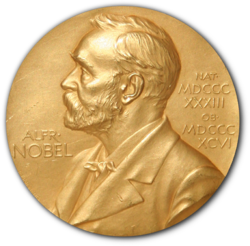
1. The Origins of the Nobel Prizes
The Nobel Prizes were established by the 1895 will of Alfred Nobel, a Swedish chemist, engineer, and inventor best known for inventing dynamite. Nobel was deeply concerned about how he would be remembered after his death. When a premature obituary labeled him “the merchant of death,” he was reportedly shaken and decided to use his vast fortune to honor those who advanced humanity.
In his will, Nobel left instructions that his wealth be used to establish prizes in five categories:
-
Physics
-
Chemistry
-
Medicine (or Physiology)
-
Literature
-
Peace
The Sveriges Riksbank Prize in Economic Sciences in Memory of Alfred Nobel was added later in 1968, funded by Sweden’s central bank.
2. The Purpose of the Nobel Prizes
Alfred Nobel stated that the prizes should be awarded to those who:
"have conferred the greatest benefit to humankind."
Each category reflects areas Nobel believed could shape the future of civilization. The prizes are intended to:
-
Encourage scientific discovery and innovation
-
Promote peaceful conflict resolution
-
Celebrate literary excellence
-
Advance human health and welfare
-
Recognize economic insights that improve society
3. The Awarding Process
The Nobel Prizes are awarded by different institutions:
-
The Royal Swedish Academy of Sciences – Physics, Chemistry, and Economics
-
The Nobel Assembly at the Karolinska Institute – Medicine
-
The Swedish Academy – Literature
-
The Norwegian Nobel Committee – Peace Prize
Nominations are submitted by qualified individuals or organizations, including previous laureates, academics, and political leaders. The selection process is highly secretive and can take months of review, debate, and voting.
4. Impact and Legacy
Winning a Nobel Prize is considered one of the highest honors in the world. It often brings:
-
International recognition
-
Increased funding for research or causes
-
A lasting place in global history
Notable recipients include:
-
Albert Einstein (Physics, 1921)
-
Marie Curie (Physics in 1903, Chemistry in 1911 – the only person to win in two scientific fields)
-
Martin Luther King Jr. (Peace, 1964)
-
Malala Yousafzai (Peace, 2014 – youngest laureate ever)
The awards have also inspired public interest in science, literature, and peace efforts.
5. Criticism and Controversies
While widely respected, the Nobel Prizes have faced criticism:
-
Underrepresentation of women and minorities
-
Political influences, especially in Peace Prize selections
-
Omissions, such as Mahatma Gandhi never receiving a Nobel Peace Prize
-
Delay in recognition of deserving work (many scientists receive the prize decades later)
Nevertheless, the Nobel Prizes remain a powerful symbol of excellence and global progress.
Conclusion
The Nobel Prizes are awarded to honor remarkable contributions that uplift humanity. From scientific breakthroughs to literature and peacebuilding, they serve as a reminder of the positive impact individuals can have on the world. Rooted in the legacy of Alfred Nobel, these prizes continue to inspire generations to dream, discover, and change the world for the better.

You must be logged in to post a comment.